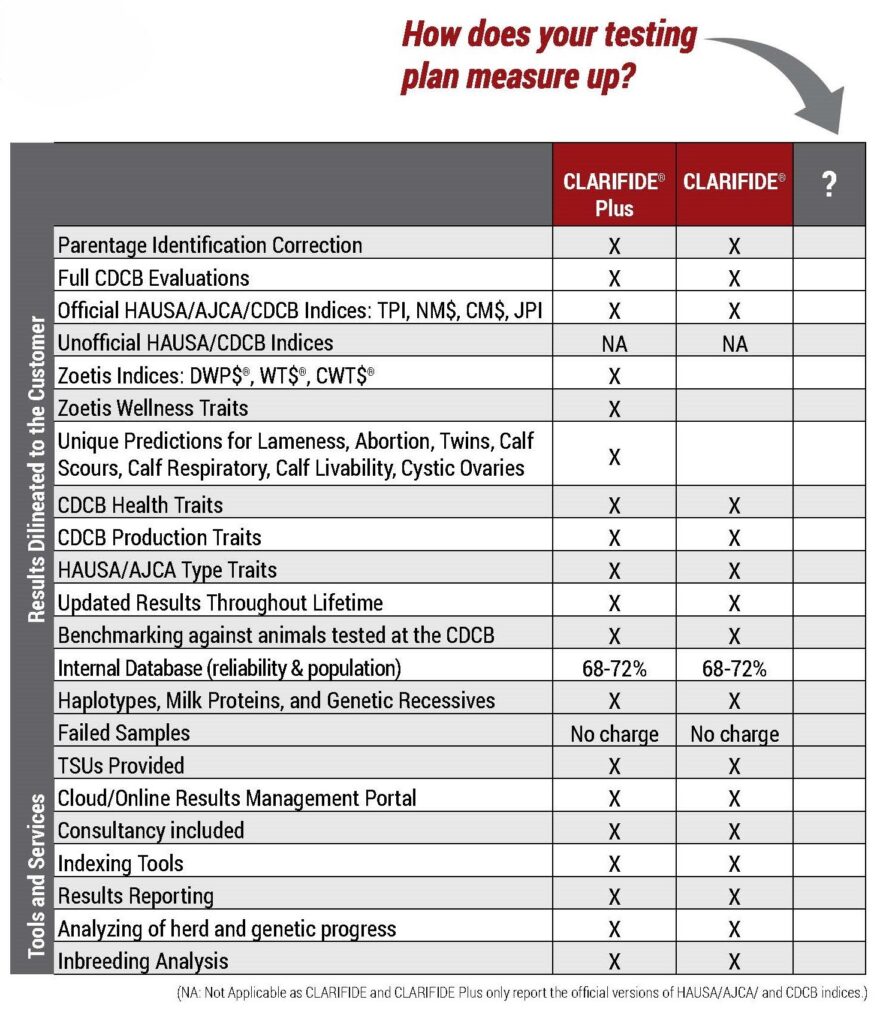Author: Dr. John Cook and Rebekah Mast, World Wide Sires
Access to relatively cheap and rapid genomic tests allows herds to individually test cows and heifers and to further enhance genetic gain through accurate identification, ranking females, and selecting the mothers of the next generation. With a growing number of tests available to choose from, how do you pick the best test to meet your needs? Here are three questions to ask before selecting a test type.
1. What reference population is the genomic evaluation based on?
Any genomic test is only as good as the reference population on which it is based, so consider the size of the reference population. Does it represent the type of cattle you wish to breed? Many low-cost tests are often based on smaller, and potentially poorer, reference populations that may only be specific to a particular testing laboratory or region.
2. Is the test a one-off evaluation, or will the genome be registered with and evaluated by a validating organization such as the Council on Dairy Cattle Breeding (CDCB)?
Genetic information for animals is continuously being updated and reevaluated, making it critically important to get the most up-to date information on your females. A one-time delivery of genomic data is not recommended, as it will quickly be out of date and no longer accurate. Official registration will most likely carry a fee and increase the cost of the test, but it will ensure that the animal’s genetic evaluation can be updated as more information about that individual and her relations becomes available throughout her lifetime.
3. What traits are evaluated?
Before genomic testing, the industry had already begun to provide evaluations for some health traits and to incorporate these traits into selection indices. However, these were based on phenotypic data with limited knowledge of which genome regions were influencing those traits. For genomics to have a true and lasting value, testing should allow access and exploration of regions of the genome that were previously unknown to improve existing traits and create new ones. When you use a genomic test that only evaluates existing traits, the industry misses out on opportunities to make our cows healthier and more productive.
The first complete bovine genome from a Hereford cow was published in 2009 by Elsik et al. Genomic information has since become a tool widely used in cattle breeding and is potentially the single biggest advance in our industry since the advent of A.l. Genomic technology is here to stay and while it is now used across the industry, we are still only beginning to understand what genomic data offers and how to utilize the information it provides.
CLARIFIDE® and CLARAFIDE Plus® genomic evaluations from Zoetis provide ongoing, official CDCB-verified evaluations providing you with the tools to help improve productivity and profitability. Ask your CentralStar team about accelerating your genetic strategy with the addition of Zoetis genomic testing.

